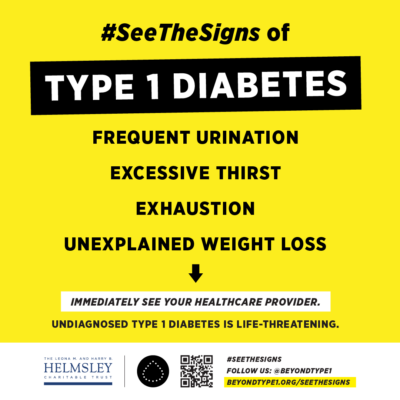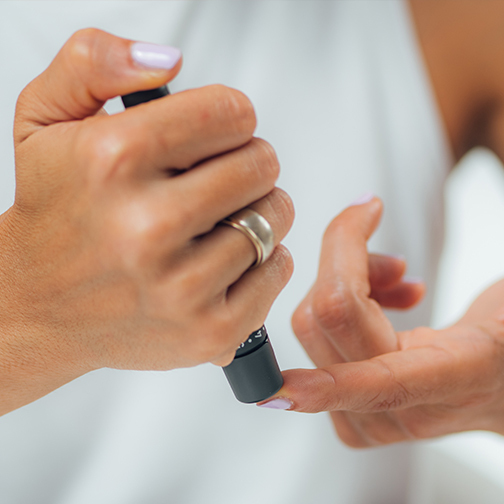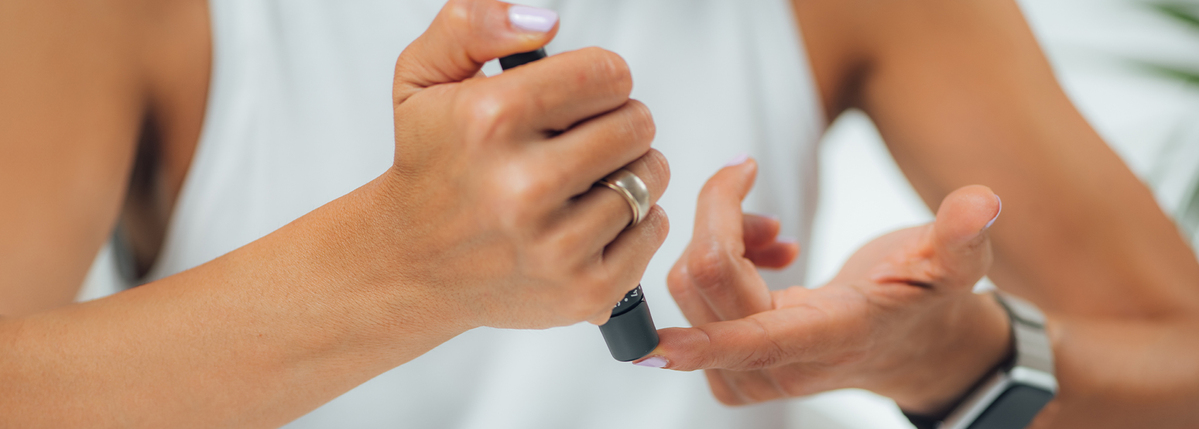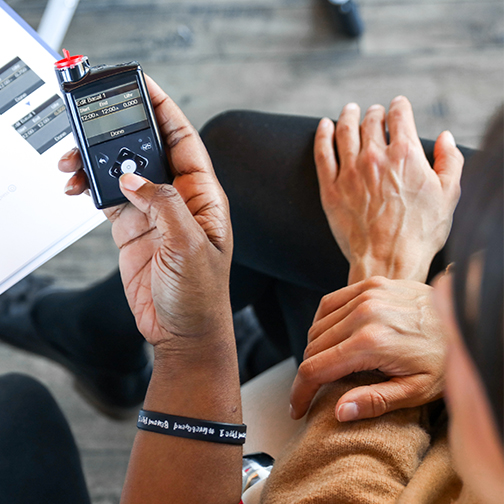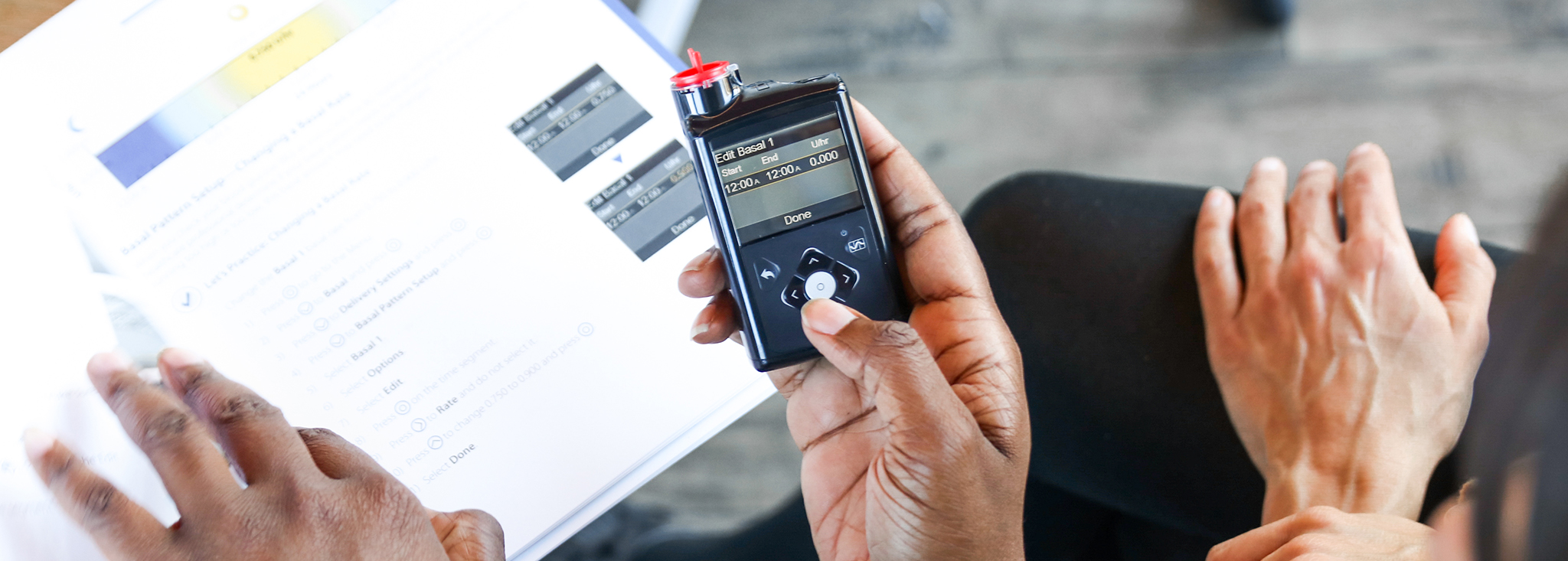What is Type 1 diabetes?
Note: This article is part of our library of resources for Forms of Diabetes.
 What is type 1 diabetes?
What is type 1 diabetes?
Type 1 diabetes, which was formerly known as juvenile diabetes but is diagnosed in adults as frequently as it is in children, is a chronic autoimmune condition that makes the body unable to produce insulin, which is the hormone that regulates blood sugar. Without insulin, our bodies cannot use the sugar in our bloodstream as energy, causing people to experience diabetic ketoacidosis (DKA).
What are the symptoms of type 1 diabetes?
There are many signs or symptoms that can be present when someone has undiagnosed or untreated diabetes. Here are the symptoms:
- Excessive thirst
- Frequent urination
- Unexplained weight loss
- Exhaustion
Ask your healthcare provider for a blood sugar or urine test immediately.
Untreated type 1 diabetes can be life-threatening. Seek emergency medical care if you are experiencing:
- Fruity-smelling breath
- Nausea
- Stomach pain
- Rapid breathing
- Confusion
- Drowsiness
Learn about the warning signs of T1D.
How does type 1 diabetes affect the body?
Type 1 diabetes is an autoimmune condition, which means that the body’s immune system attacks itself, much like celiac disease. In the case of type 1 diabetes, the body attacks the insulin-producing beta cells. These are the cells in the body that produce insulin. Over time, people with type 1 diabetes are left with none of these beta cells, also known as islet cells, and therefore cannot produce their own insulin. Insulin is the hormone that allows the body to use the glucose (sugar) in the bloodstream as energy—it kind of acts as a key that unlocks the body’s cells, allowing glucose to enter and be absorbed. Converting blood glucose is the body’s main way that it gets energy, so without insulin, it has to resort to breaking down bodily tissue such as muscle and fat stores. Another, potentially fatal, consequence for people with type 1 diabetes who aren’t on insulin therapy is diabetic ketoacidosis, or DKA. DKA occurs when there is an overload of glucose in the bloodstream because there is no regulating insulin. For more information on DKA click here.
What causes type 1 diabetes?
Type 1 diabetes (T1D) is neither preventable nor curable and while its cause is unknown, studies suggest that T1D results from a genetic predisposition, typically combined with an environmental trigger.
How do you manage type 1 diabetes?
Living with T1D is a full-time balancing act requiring constant attention to avoid acute, life-threatening hypoglycemia (low blood sugar) or the long-term damage done by hyperglycemia (high blood sugar). Blood sugar levels must be monitored either with finger pricks or a continuous glucose monitor. Insulin doses must then be carefully calculated based upon activity and stress levels, food intake, illness and additional factors. These calculations are rarely perfect resulting in a tremendous emotional and mental burden for both patients and caregivers.
There are two main types of diabetes:
- Type 1 diabetes (T1D) is an incurable, autoimmune disease, not a lifestyle disease. Roughly 8.7 million people live with T1D around the world. People with type 1 are insulin-dependent for life.
- Type 2 diabetes (T2D) is a metabolic disease influenced by genetic, socioeconomic and lifestyle factors. Over 525 million people live with T2D around the world. It occurs when the body cannot properly use insulin, also known as insulin resistance, and can often be treated through diet, exercise and medication.
Learn about type 2 diabetes here and other forms of diabetes here.


